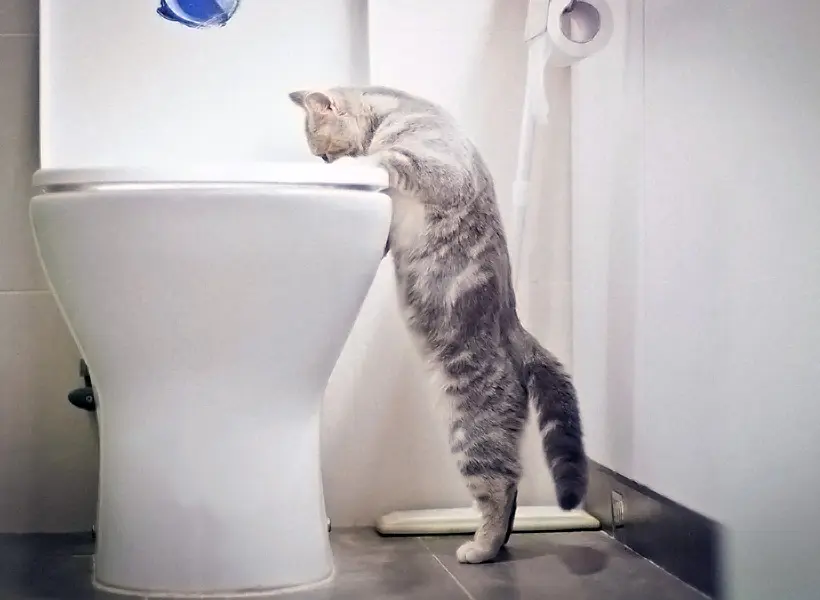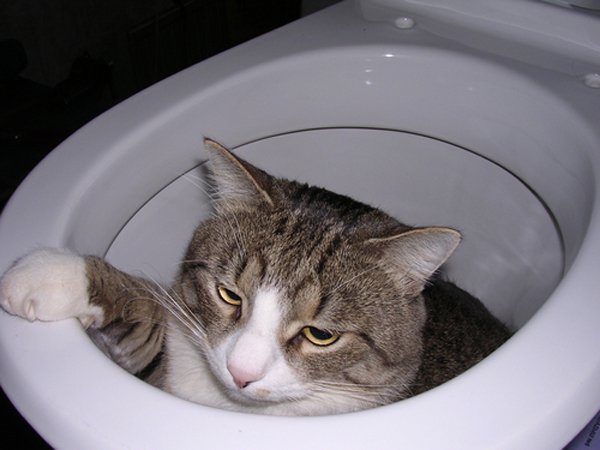Reasons Flushing Cat Poop Down Your Toilet May Cause Problems - Recommendations for Proper Handling
Reasons Flushing Cat Poop Down Your Toilet May Cause Problems - Recommendations for Proper Handling
Blog Article
Just about everyone is bound to have their personal idea on the subject of Can You Flush Cat Poo or Litter Down the Toilet?.

Introduction
As cat proprietors, it's important to bear in mind exactly how we deal with our feline close friends' waste. While it may appear practical to purge feline poop down the bathroom, this practice can have detrimental consequences for both the atmosphere and human health.
Ecological Impact
Purging cat poop presents damaging virus and bloodsuckers right into the water, positioning a considerable threat to marine ecological communities. These contaminants can negatively influence aquatic life and concession water quality.
Health Risks
In addition to environmental worries, flushing cat waste can likewise present wellness threats to human beings. Cat feces might contain Toxoplasma gondii, a parasite that can cause toxoplasmosis-- a potentially extreme health problem, specifically for expecting females and people with weakened immune systems.
Alternatives to Flushing
The good news is, there are safer and extra responsible means to dispose of cat poop. Consider the following options:
1. Scoop and Dispose in Trash
One of the most typical approach of dealing with feline poop is to scoop it right into an eco-friendly bag and toss it in the garbage. Make certain to use a dedicated trash scoop and dispose of the waste without delay.
2. Usage Biodegradable Litter
Opt for biodegradable pet cat litter made from products such as corn or wheat. These trashes are eco-friendly and can be safely thrown away in the trash.
3. Bury in the Yard
If you have a yard, consider hiding pet cat waste in a marked location away from veggie yards and water resources. Make sure to dig deep enough to stop contamination of groundwater.
4. Set Up a Pet Waste Disposal System
Purchase a family pet waste disposal system specifically made for feline waste. These systems make use of enzymes to break down the waste, decreasing odor and ecological effect.
Final thought
Accountable family pet possession expands past offering food and shelter-- it additionally includes appropriate waste management. By refraining from purging feline poop down the bathroom and selecting alternative disposal approaches, we can lessen our environmental impact and secure human health.
Why You Should Never Flush Cat Poop Down the Toilet
A rose by any other name might smell as sweet, but not all poop is created equal. Toilets, and our sewage systems, are designed for human excrement, not animal waste. It might seem like it couldn’t hurt to toss cat feces into the loo, but it’s not a good idea to flush cat poop in the toilet.
First and foremost, assuming your cat uses a litter box, any waste is going to have litter on it. And even the smallest amount of litter can wreak havoc on plumbing.
Over time, small amounts build up, filling up your septic system. Most litter sold today is clumping; it is made from a type of clay that hardens when it gets wet. Ever tried to scrape old clumps from the bottom of a litter box? You know just how cement-hard it can get!
Now imagine just a small clump of that stuck in your pipes. A simple de-clogger like Drano isn’t going to cut it. And that means it’s going to cost you big time to fix it.
Parasitic Contamination
Believe it or not, your healthy kitty may be harboring a nasty parasite. Only cats excrete Toxoplasma in their feces. Yet it rarely causes serious health issues in the cats that are infected. Most people will be fine too if infected. Only pregnant women and people with compromised immune systems are at risk. (If you’ve ever heard how women who are expecting are excused from litter cleaning duty, Toxoplasma is why.)
But other animals may have a problem if infected with the parasite. And human water treatment systems aren’t designed to handle it. As a result, the systems don’t remove the parasite before discharging wastewater into local waterways. Fish, shellfish, and other marine life — otters in particular — are susceptible to toxoplasma. If exposed, most will end up with brain damage and many will die.
Depending on the species of fish, they may end up on someone’s fish hook and, ultimately on someone’s dinner plate. If that someone has a chronic illness, they’re at risk.
Skip the Toilet Training
We know there are folks out there who like to toilet train their cats. And we give them props, it takes a lot of work. But thanks to the toxoplasma, it’s not a good idea.

We had been made aware of that write-up on Don’t flush cat feces down the toilet from a good friend on our other site. Do you know about anybody else who is sincerely interested in the topic? Why not share it. I appreciate reading our article about How to Dispose of Cat Poop and Litter Without Plastic Bags.
Book 24/7 Report this page